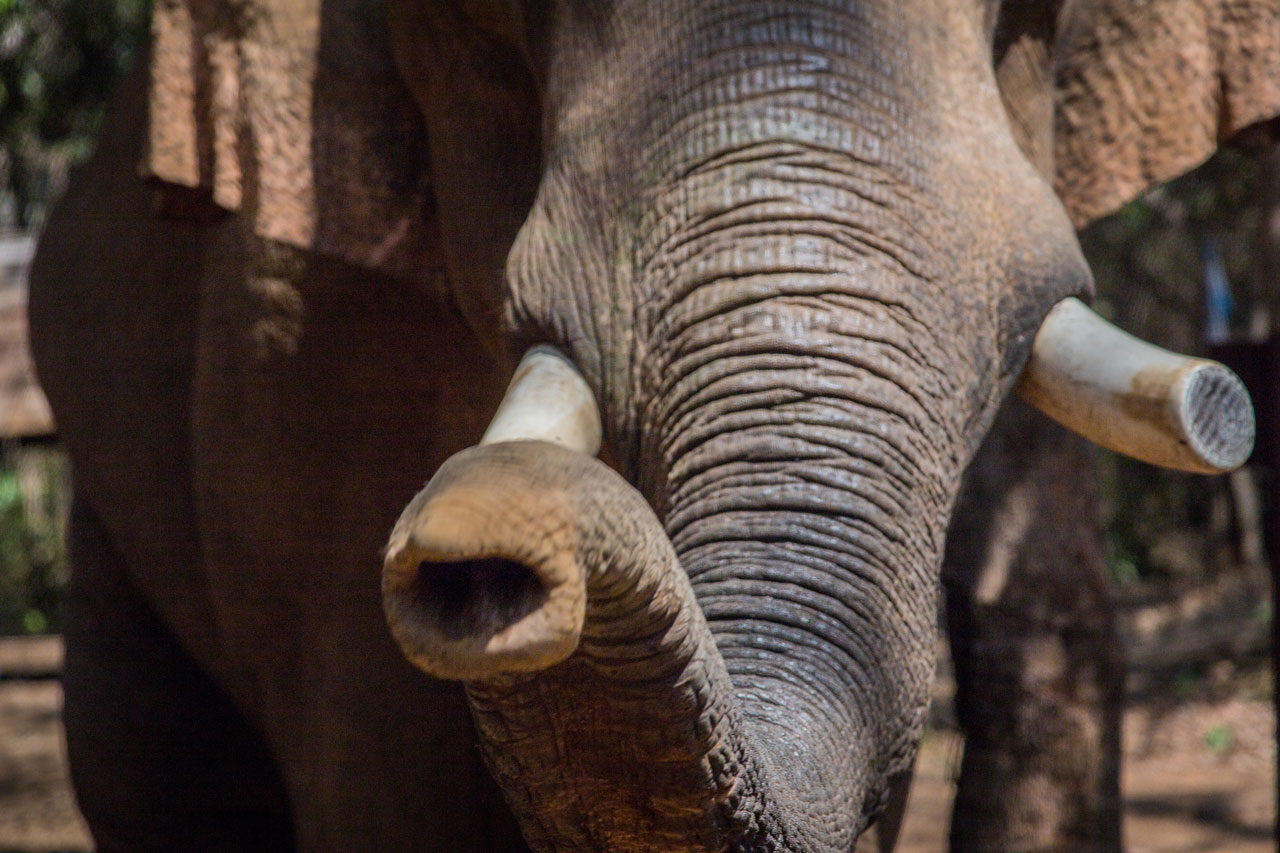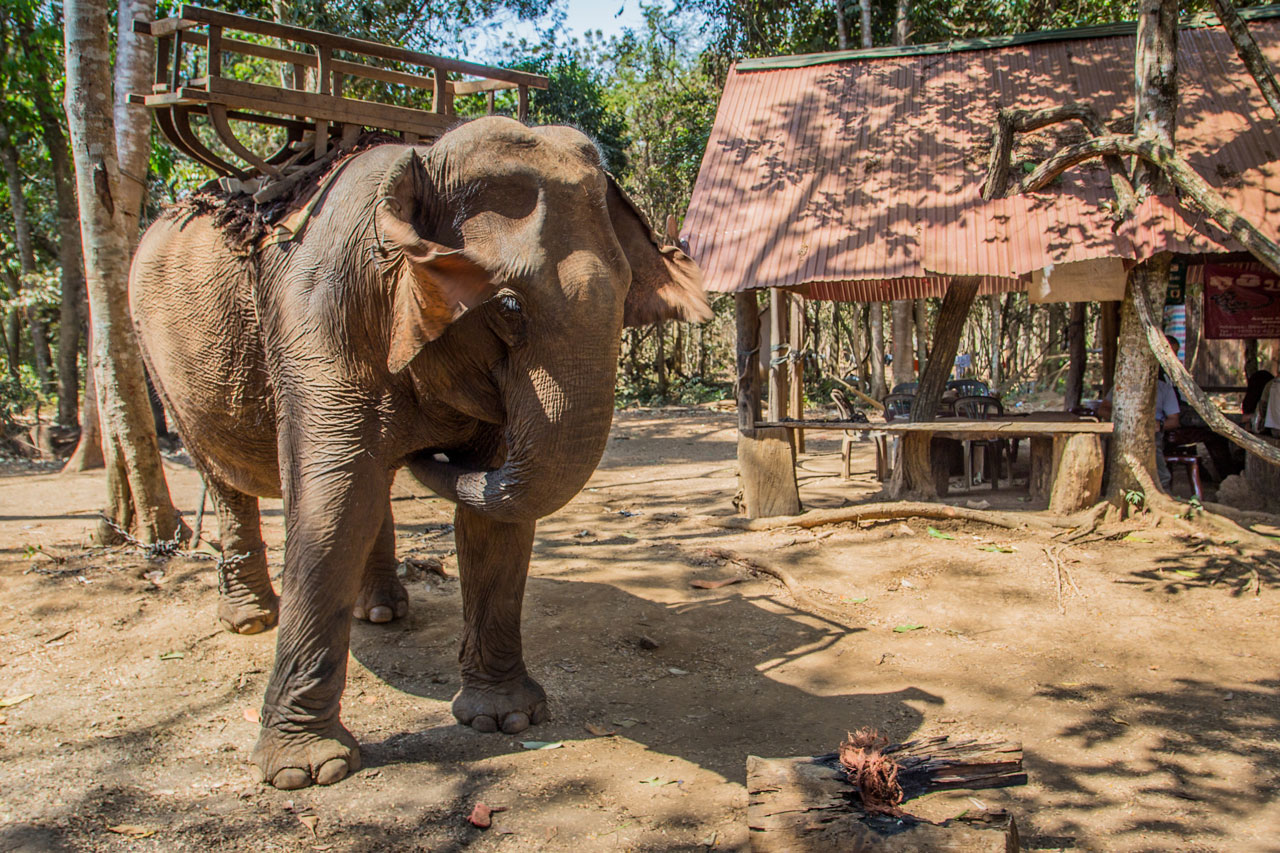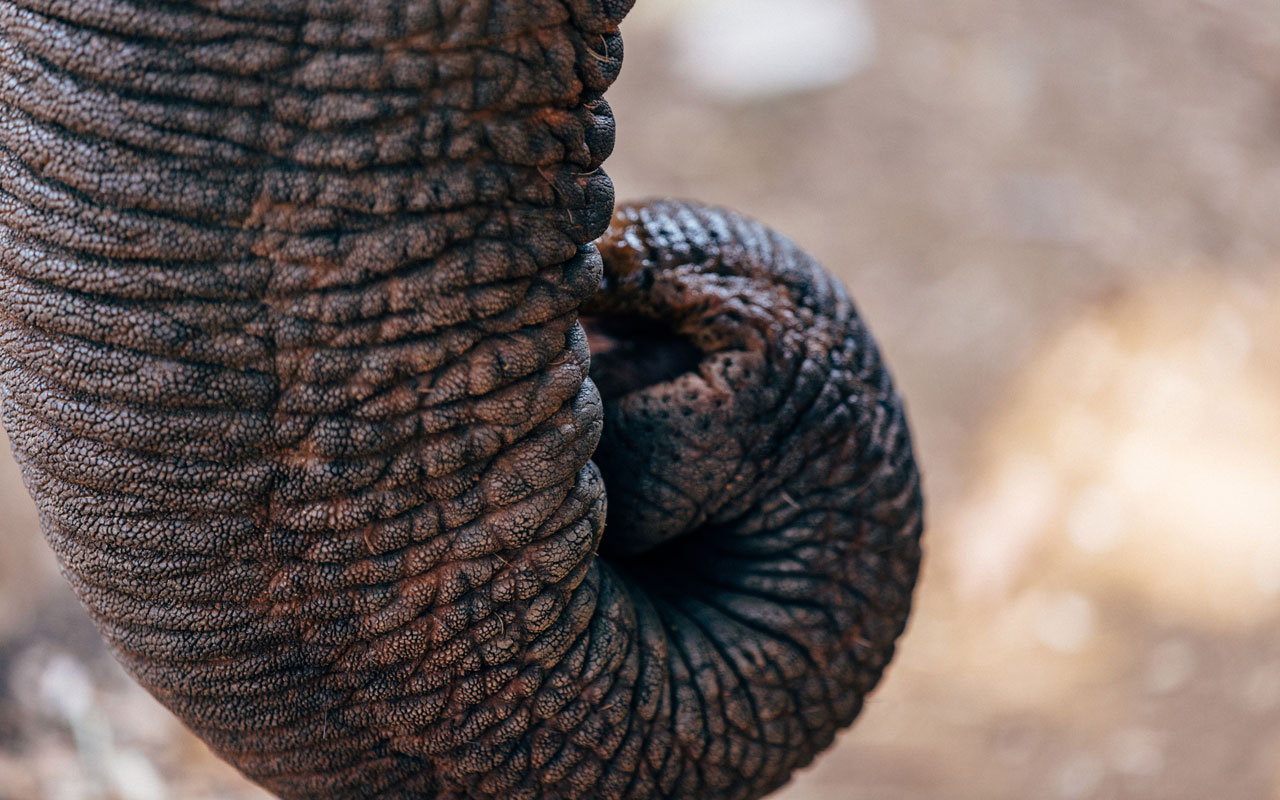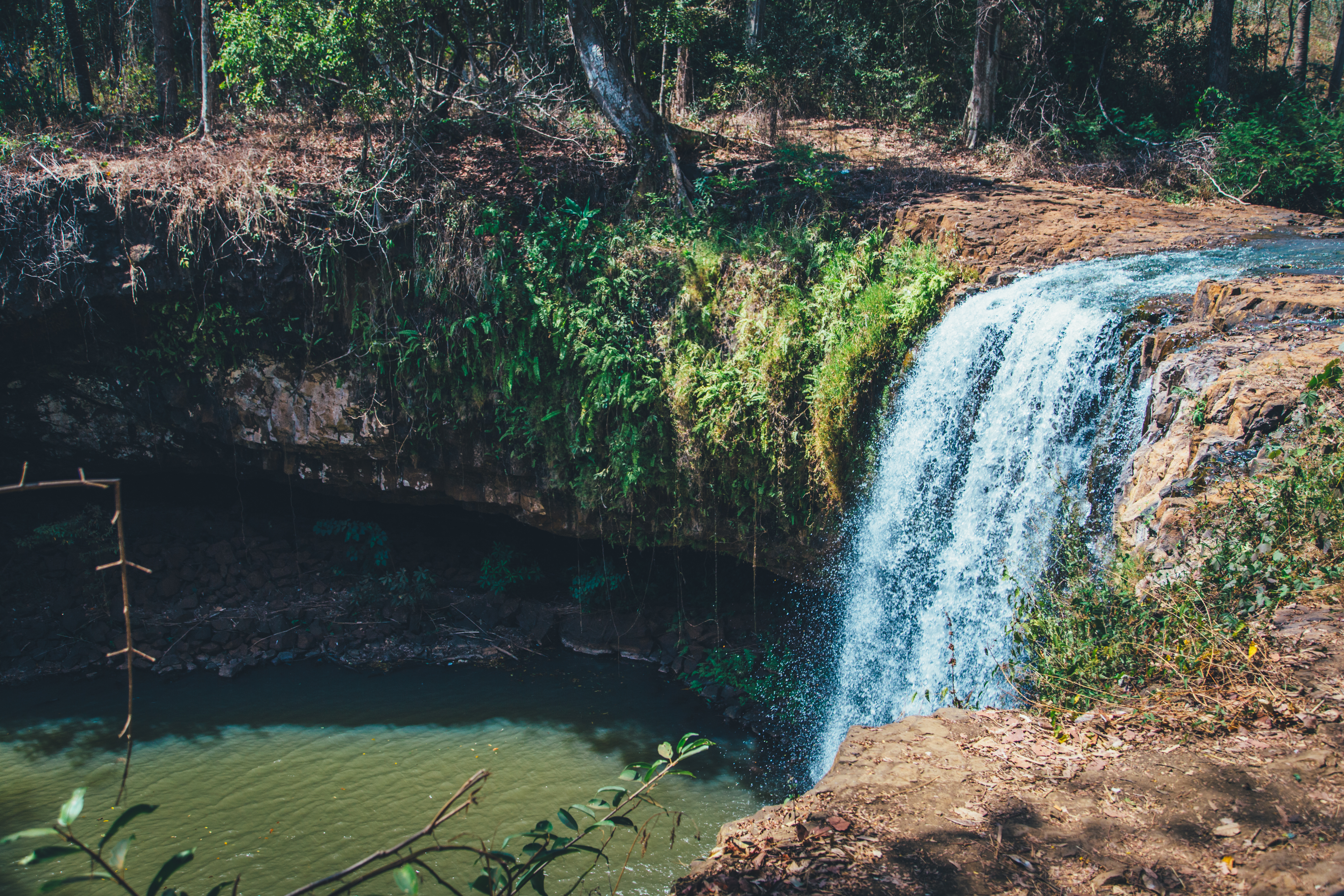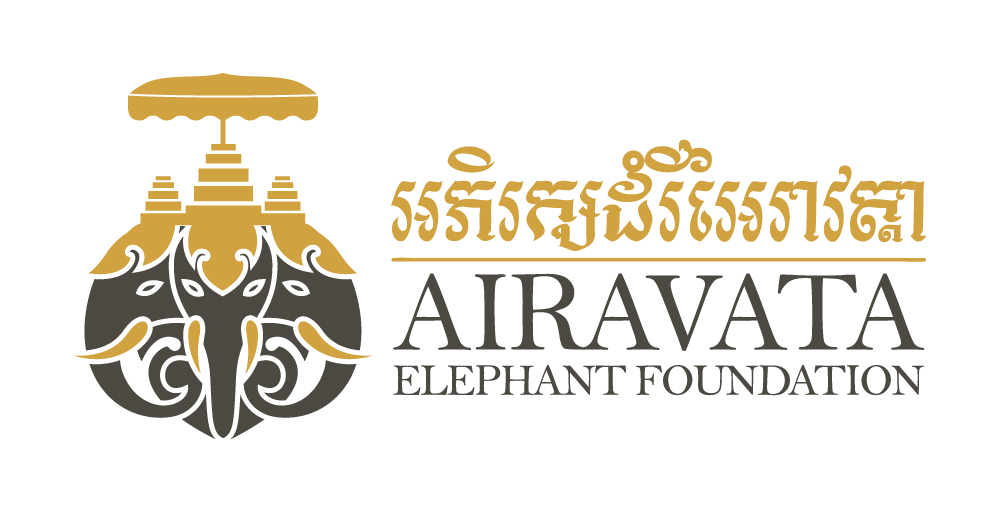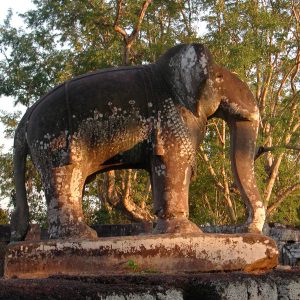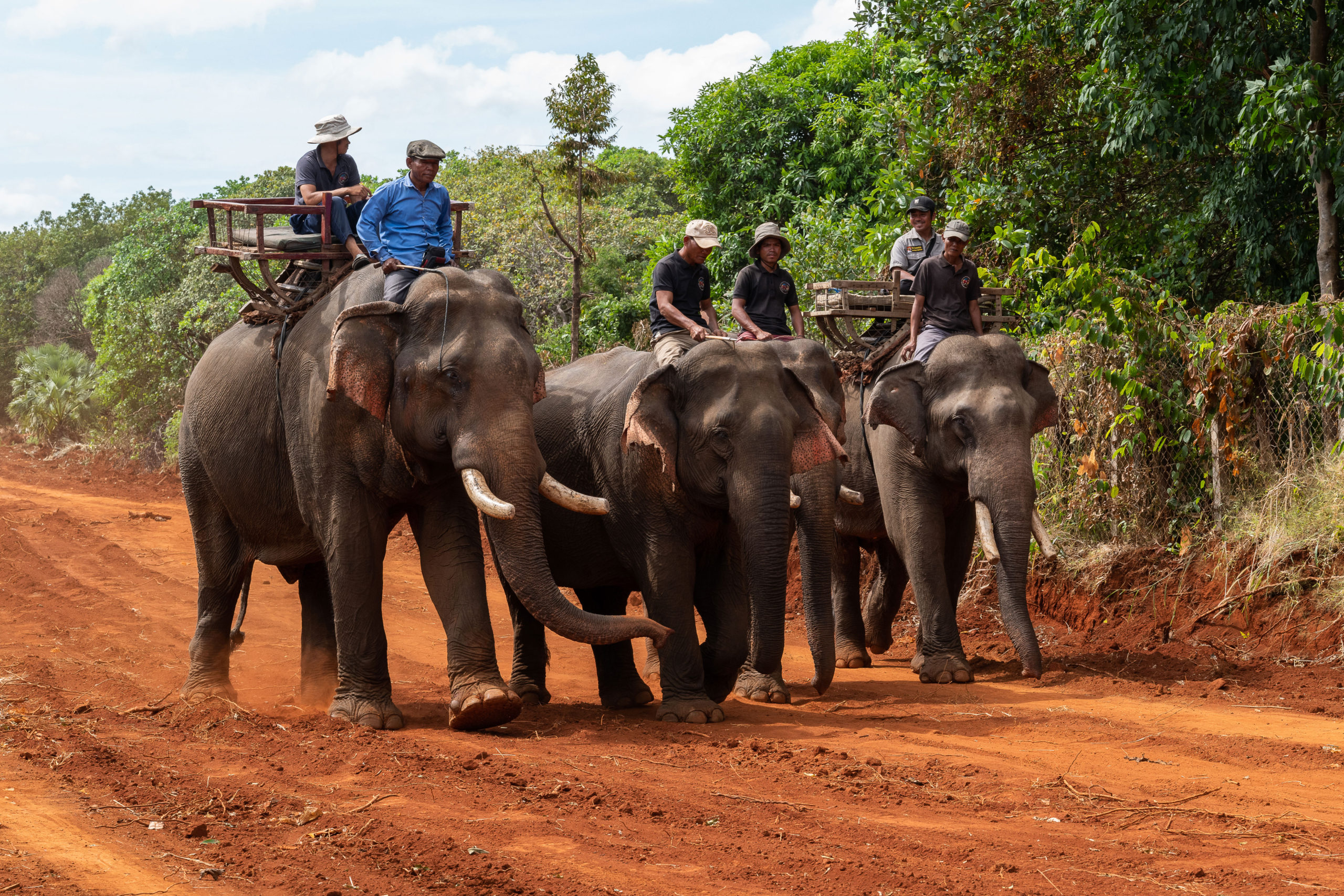
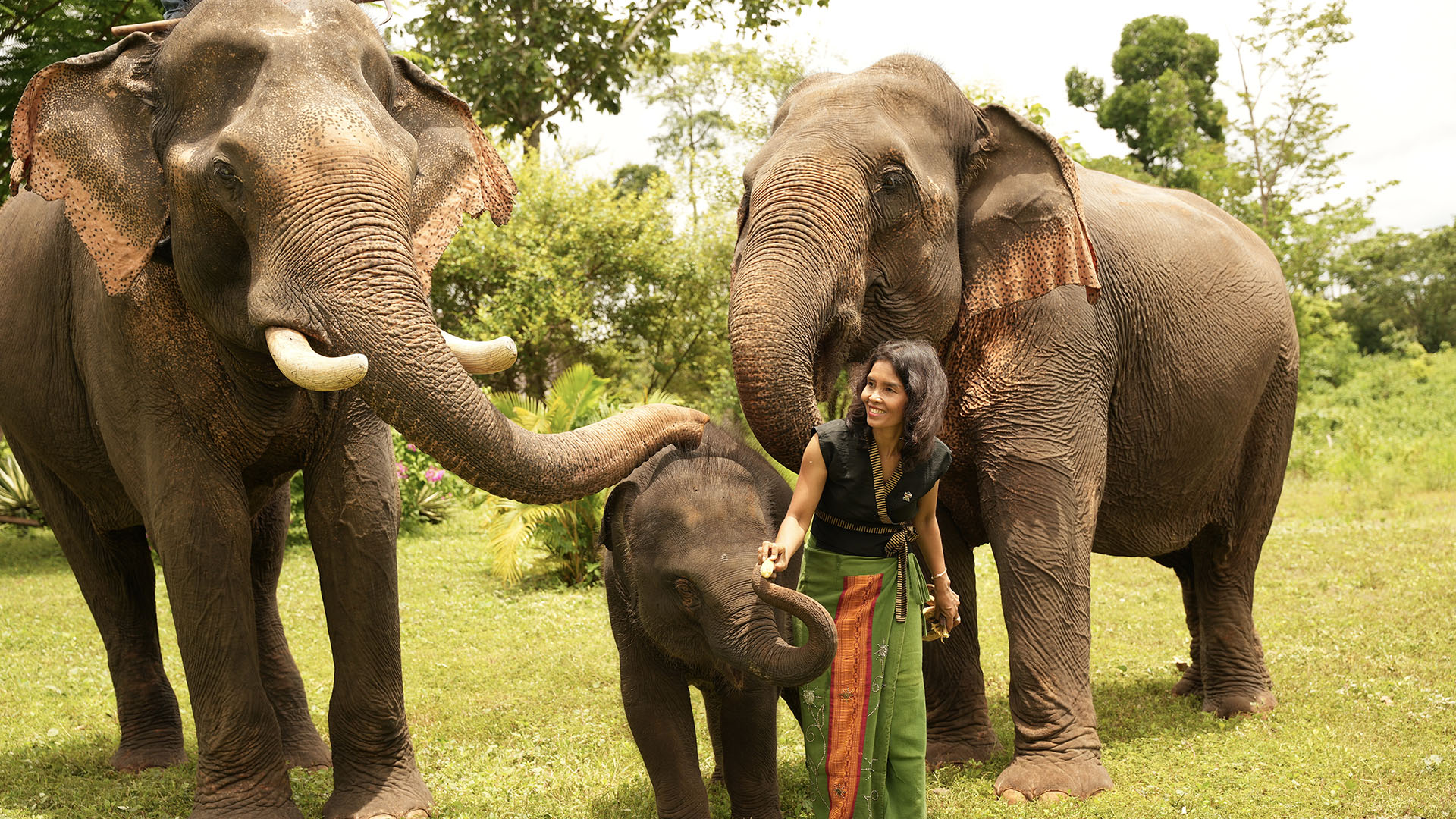
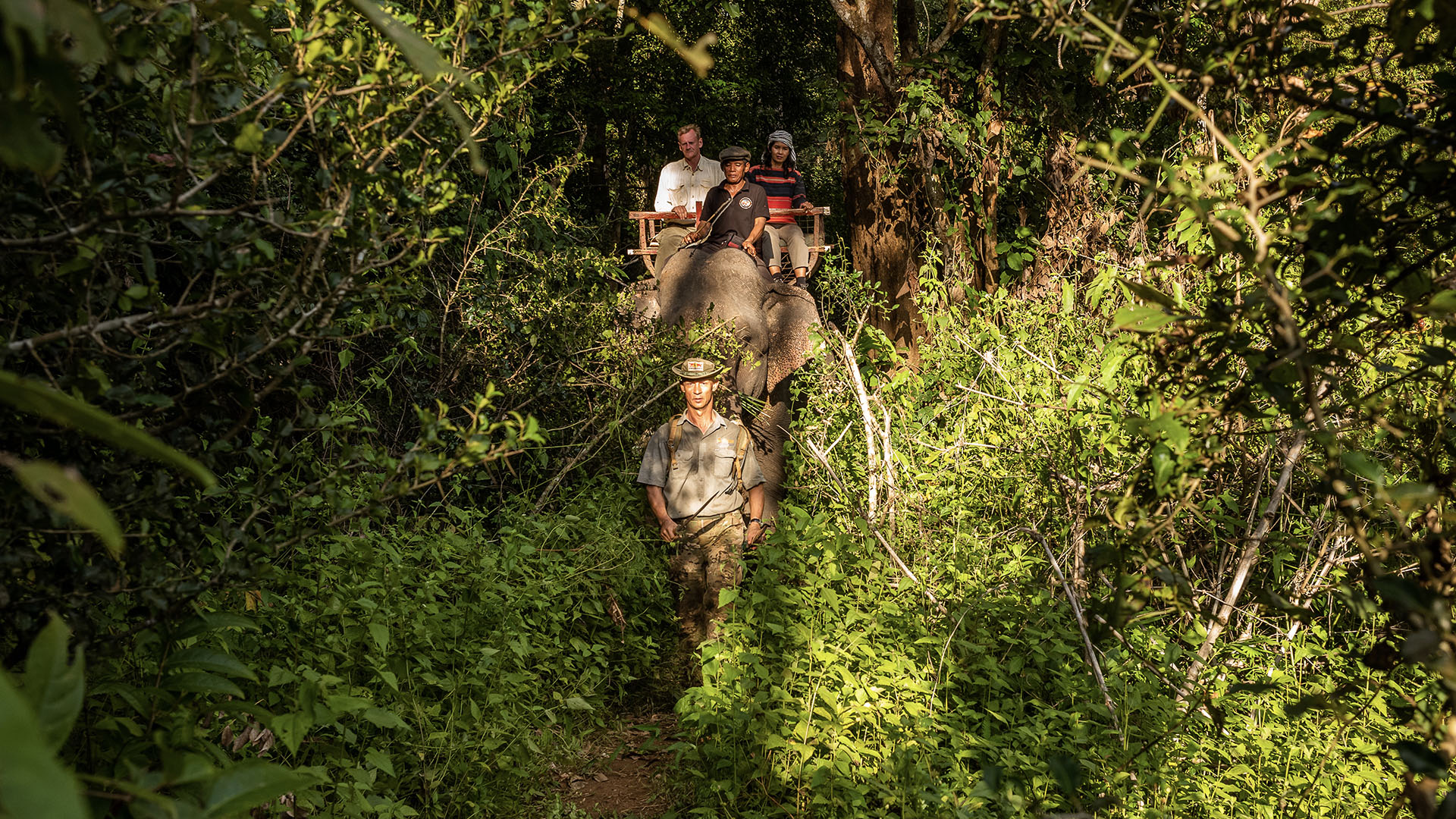
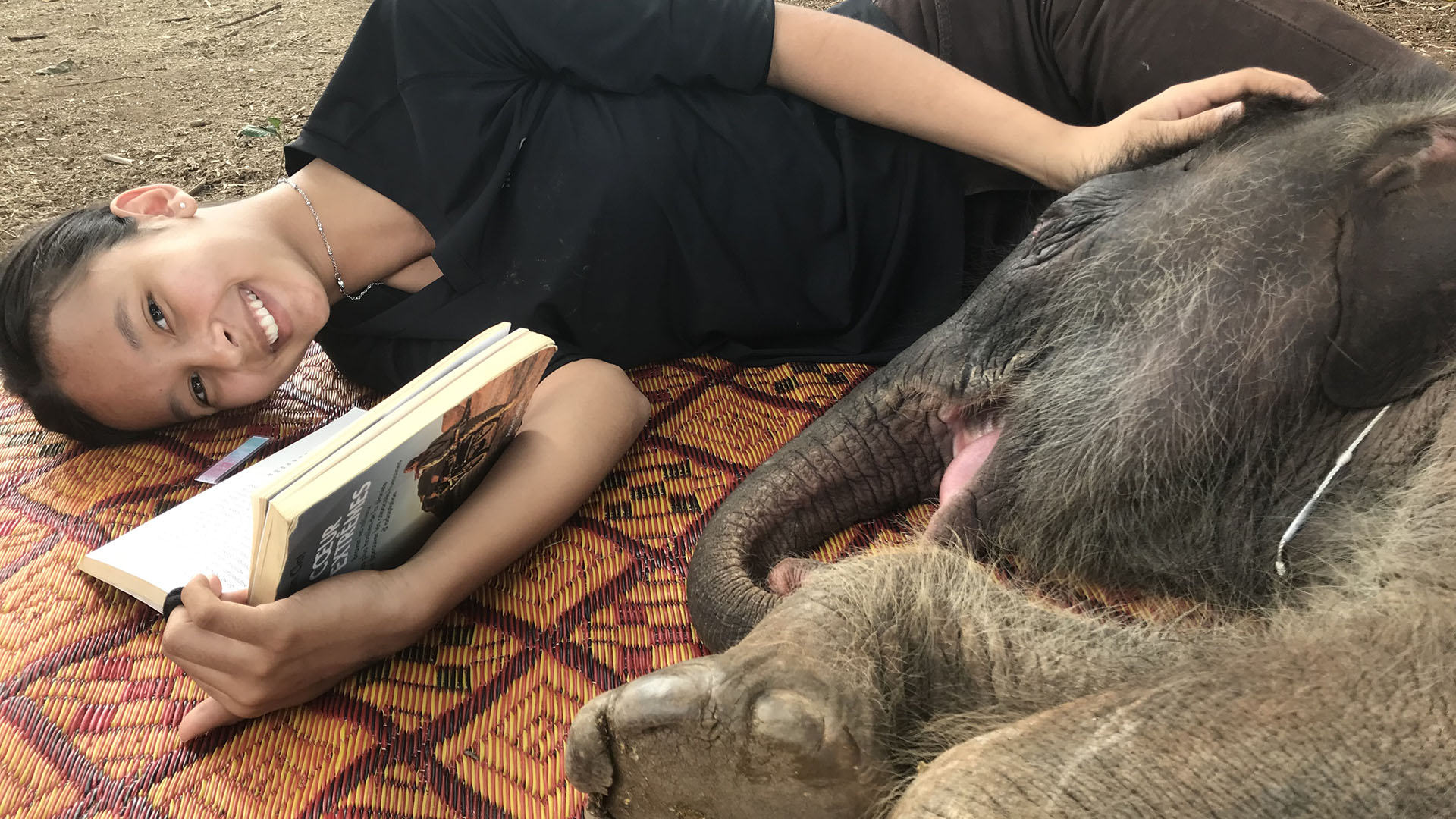
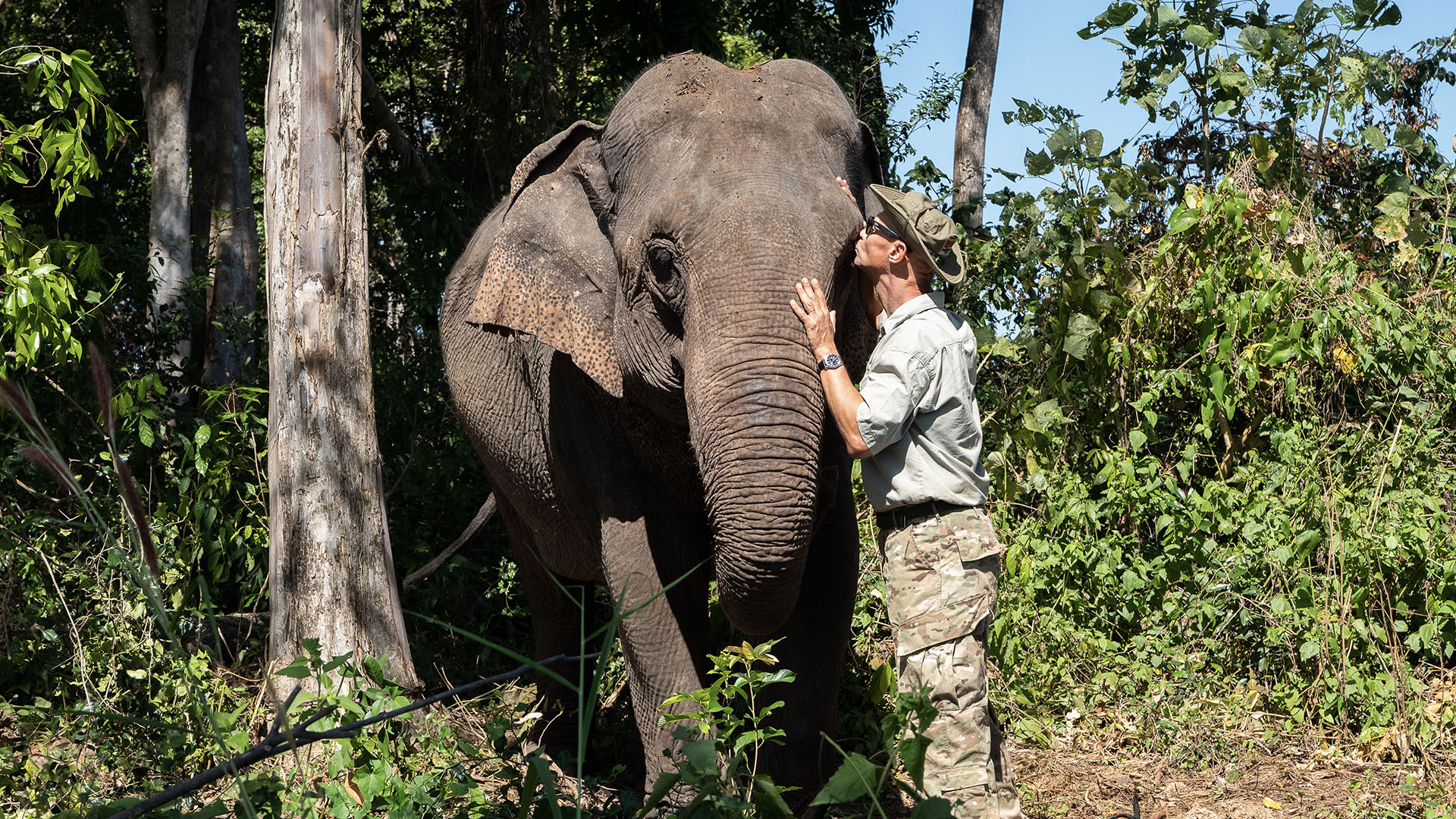
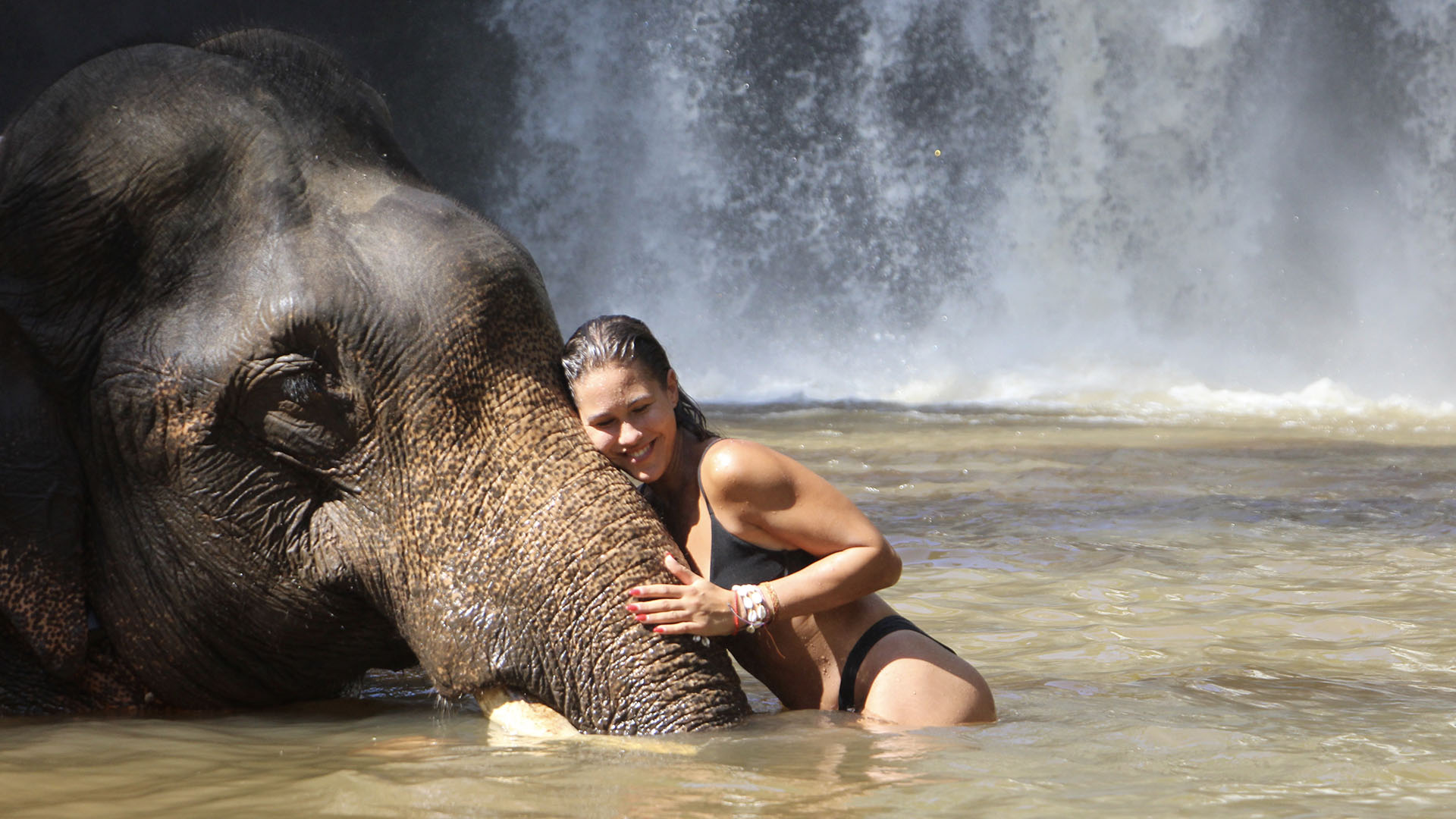
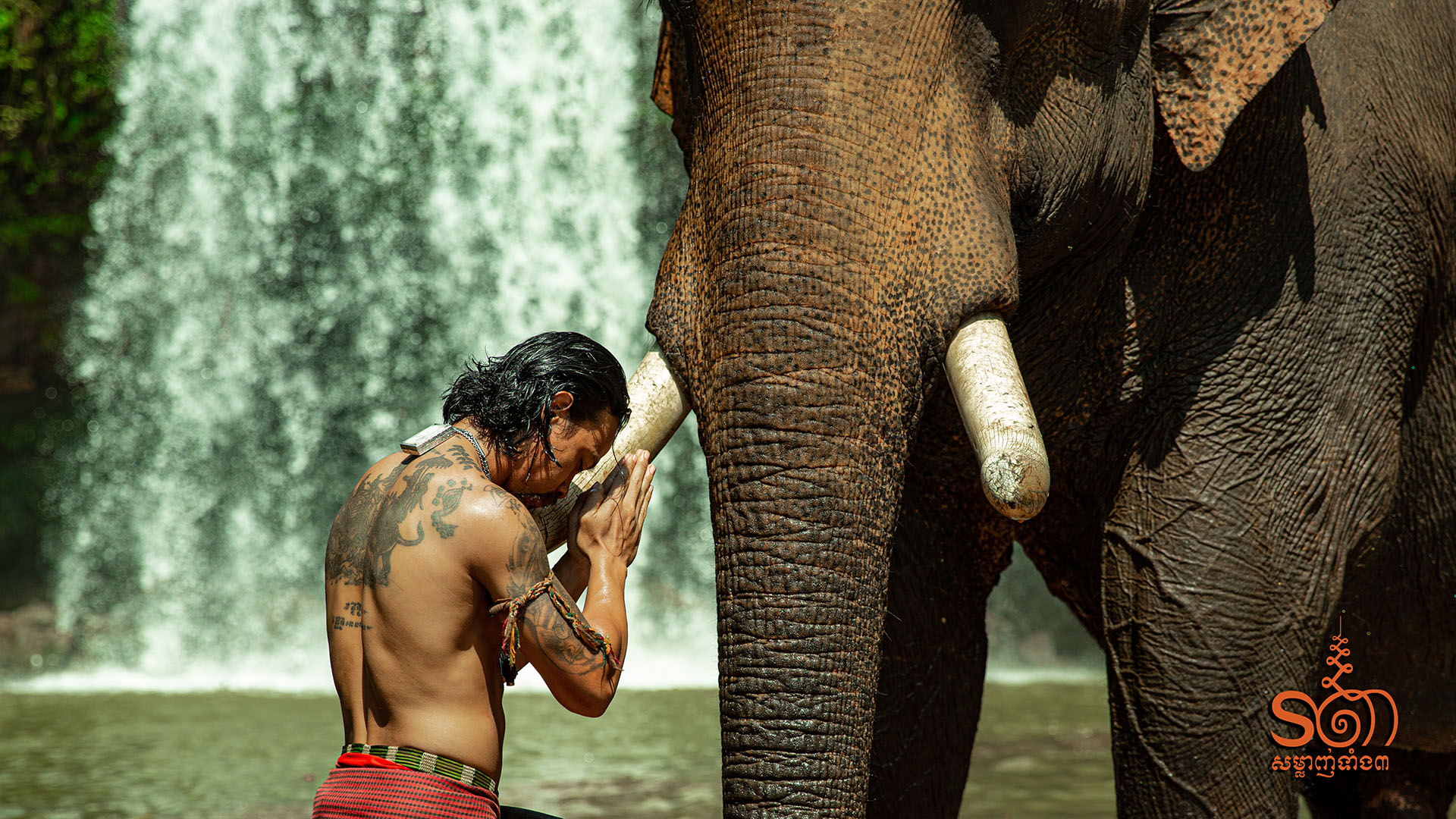


Introduction
Located in the province of Ratanakiri in the far north-east of Cambodia, Airavata is a foundation that works to maintain the multi-millennial link between man and elephant.
Decried, sullied and caricatured by some Westerners whose motives are sometimes as ideological as they are financial, this link is nevertheless one of the most noble achievements that humanity has ever made. To tame the elephant, to establish a lasting trust between a pachyderm weighing several tons and a human weighing a few kilos is to hold the torch to a tradition that dates back 4500 years!
A new generation elephant camp, an ethical and responsible alternative to mass tourism, Aïravata is a place where balance is sought above all. Between the Katieng forest, which shelters and feeds our elephants, and the centre where we work with them on a daily basis, applying as best we can the rules established by the “Asian Captive Elephants Standards”, we ensure our protégés healthy and natural living conditions but also a permanent interaction with humans based on Cambodian tradition as well as on the teachings of the best experts. Our credo is to give back its place to the elephant, this animal that has done so much for Cambodia but has almost disappeared because of the wars and the Khmer Rouge genocide. A country that forgets its history and traditions is a mutilated country; in our small way, we are working to heal these wounds.
While many elephant protection associations discourage any interaction with these animals, this is not our case. Our approach to conservation is also cultural, we intend to perpetuate these traditions which are part of the soul of the country and we continue to offer, among other eco-tourist services, elephant rides, as long as they are carefully supervised and the elephants evolve in their natural environment, the forest.
In a residual forest located about ten kilometres south of Banlung, small groups of travellers are welcomed to experience the unique experience of interacting with the last remaining domesticated Cambodian elephants.
A volunteer system will be set up to help organise the camp, train mahouts and staff, protect the Okatieng forest, set up firebreaks and nurseries to replant deforested areas.
AIRAVATA intends to demonstrate that “elephant conservation” can also rhyme with “heritage” and have another aspect than these “sanctuaries” which are often similar to zoos where any interaction with elephants has been banned by ideology.
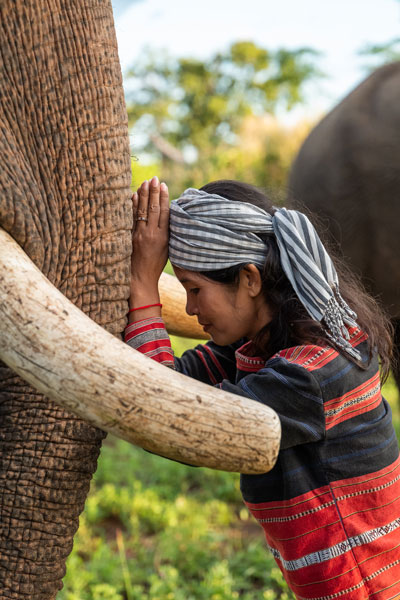
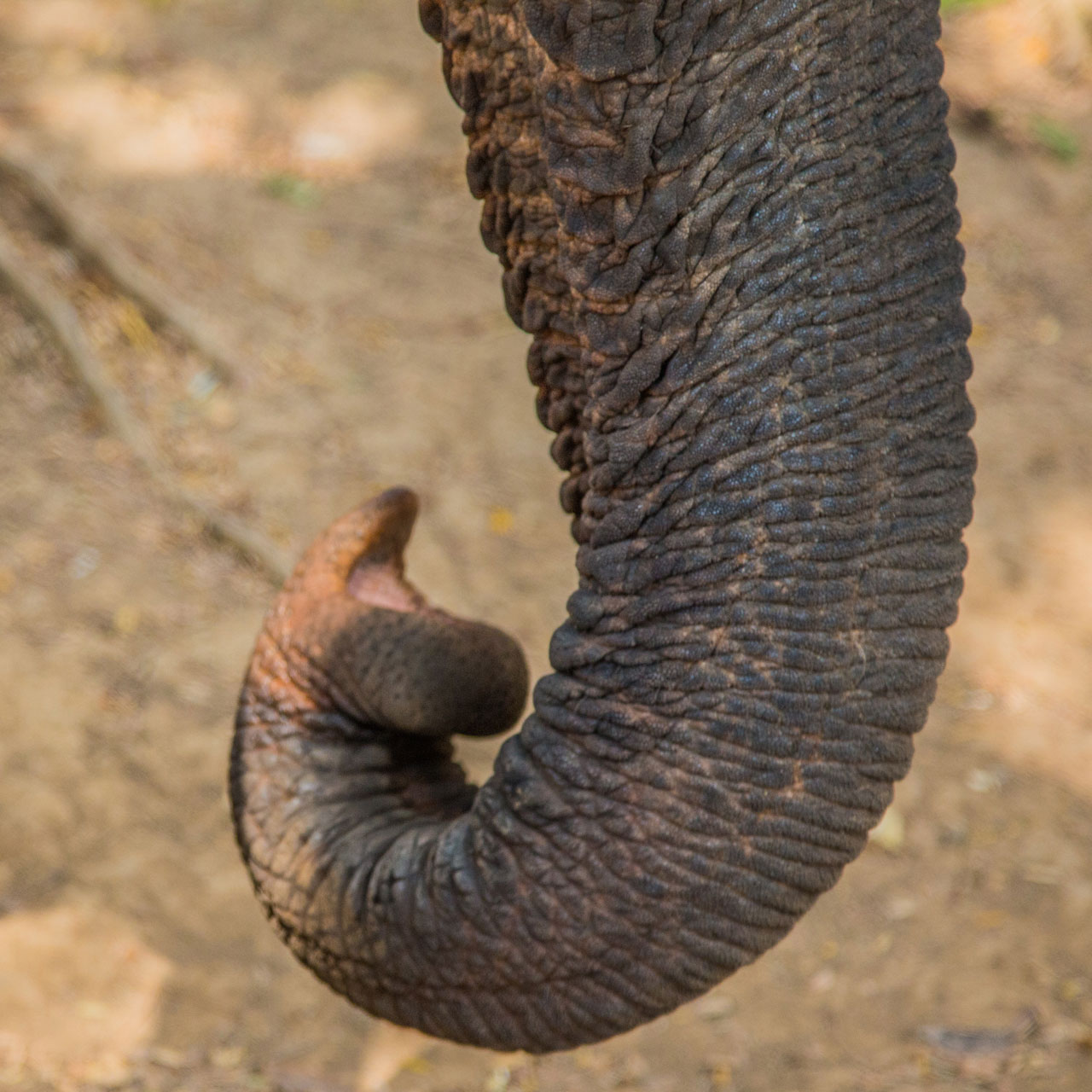
The sword of Damocles
Like many other Southeast Asian countries, Cambodia is undergoing a frantic growth, which is claiming with it the formidable bio-diversity of a whole country !
Hundreds of thousands of hectares were and are still savagely bulldozed, to such an extend that soon none of the emblematic animals of Cambodia will be left in the wild !
The tiger has already disappeared and the elephant is taking the same path.
250
•
250 HECTARES DE FORÊT À PROTÉGER
x4
•
4 ELEPHANTS RECUEILLIS PAR LE CENTRE
x5
•
5 CORNACS ENTIEREMENT DÉVOUÉS À LEURS ANIMAUX
The project
Airavata was created to curb the trend, to protect on a small scale, a human scale, the last elephants of a province and the forest where they were born. In the old days, each Ratanakiri tribe would own a few elephants but, time passing, the province started loosing its pachyderms. An exceptional heritage was on the verge of disappearance, elephants but also all the knowledge passed on from generation to generation by families of mahouts. We are therefore proud and happy to introduce you to the very last elephants of the province in their natural environment, the protected forest of Okatieng.
